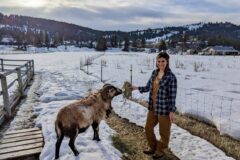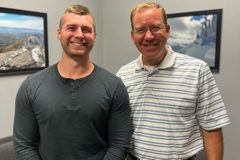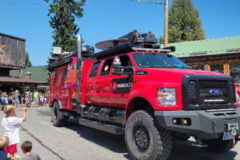Follow Rose Grant on Social Media, click here ![]() and
and ![]()
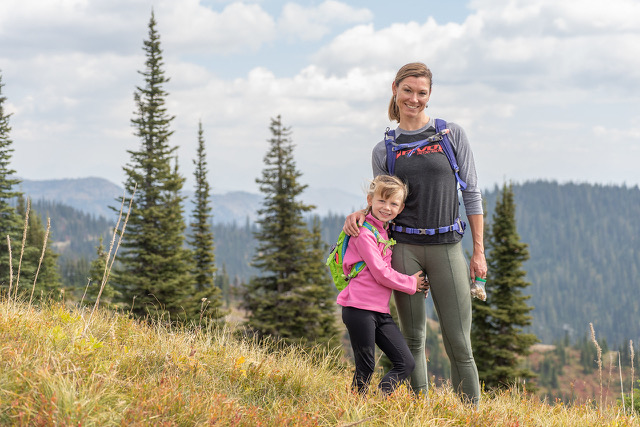
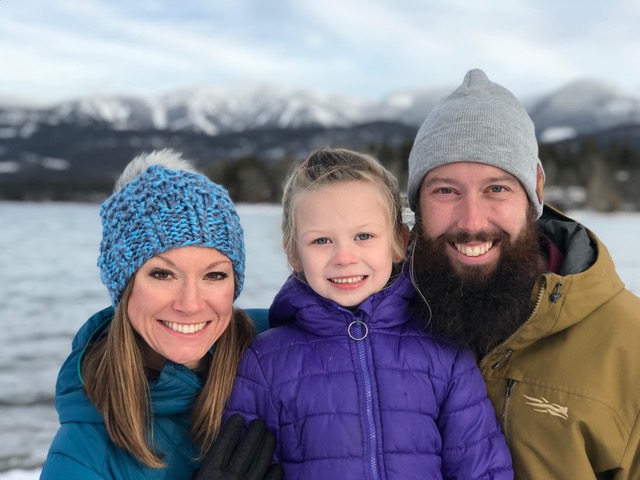
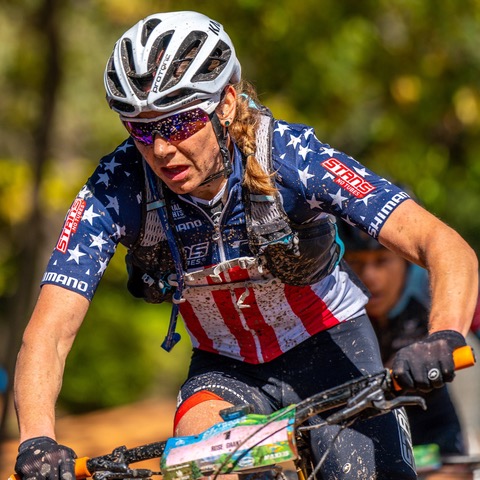
Interview transcribed here:
Welcome back to another episode of Making It Work in Montana. My name is David Boye and I’m your host. I’ve
owned Black Diamond Mortgage for over 10 years and I enjoy enjoy interviewing people who’ve made exceptional
lives here in Montana. And today is going to be a treat. The guest we have has excelled in many areas of life right
here from Montana.
[00:00:54]
And her accomplishment that you might recognize the most is her mountain bike competing.
[00:01:00]
So today I have with me is Rose Grant.
[00:01:03]
And among her accomplishments are five time mountain bike marathon national champion from 2014 to 17 and in
2019.
[00:01:15]
She’s been a four time cross-country world championship national team member from 2015 to 2017. And in 2019,
she’s been on the Pan American national team in 2018 and in 2019, she won the Leadville 100.
[00:01:35]
So our guest today is Rose Grant. Welcome, Rose. Thank you, David.
[00:01:41]
If you could just help people get acquainted with you.
[00:01:44]
Tell us about where you’re born and then how did you end up living in Montana as a competitive mountain biker?
Just give us a quick overview of that journey.
[00:01:55]
I was born in Northern California. My parents lived a very simple life. I have four brothers. They moved to northwest
Montana when I was nine. So I do consider myself a Montanan. That’s where I remember growing up. And again,
just lived a simple life there. My dad under trout hatchery, my mom was a stay at home mom and we all
homeschooled and we ski deep powder in the winter. We backpacked in the summer. I spent a lot of my my
summer days on the back of a horse and just enjoying. We always just enjoyed the outdoors. Growing up, I wasn’t
in a super competitive family. However, I did always have a competitive drive and athletics was a natural space for
me to excel. So yeah, mountain biking really found me a little bit later in life is kind of how I describe it because it
just fell in my lap for the most part. I ran a lot. I did mountain bike some when I was younger and high school age.
And when I went to college and post-college, I ran more for convenience. And just it was just simpler. And that’s
where I got I got into running more. I ran the Boston Marathon in 27, 2007. But I always fought some injuries. So
when I was in my late 20s recovering from some of those injuries, I was reintroduced to getting on my bike, riding
more. And it just sprung that spark in me that I realized how much I loved it and missed it and did some local
racing here at Whitefish Mountain. And after returning, you know, college out of state, my husband’s from Maine, so
I live there for a short time and returned to Montana.
[00:03:49]
So I was racing a little bit just for fun, get myself something to do as I was recovering from some of those overused
running injuries and just did well at those races and had realized that maybe that I actually had somewhere I could
go. I had some talent on my side and the sportsman ski haus cycling team invited me to join them. And through
that, it really opened my world to mountain biking and that there was the potential to go on there.
a teller at Rocky Mountain Bank. And you had mentioned that you’re into mountain biking and that seem like a few
years later I start seeing you and all the headlines. So it was pretty impressive to see that you had emerged at that
level. Why don’t you tell us real quick? I listed a few accomplishments and I got a chance to review your Website
and some other things. But tell us, like so far in your career, what are the accomplishments that you’re the most
proud of on the competitive side of a mountain biking?
[00:05:02] Well, I mean, the accomplishments are, I guess, a highlight. And Leadville 100 is definitely one of those to be able
to to race that. And it’s a renowned event. I think a lot of the accomplishments that I place a lot of value in don’t
necessarily have a number such as coming back from injuries multiple times, birth, childbirth and some of those
things that it’s you don’t really put a number on as far as the race result. Yeah. There’s a lot of accolades and
resumés and championships and things like that that I am definitely proud of. But those are just those are just
that’s just I guess that’s the visible part of a lot of work that goes on behind the scenes.
[00:05:55] Well, if you want to check it out. Rose-Grant.com and her Instagram handle is @RoseKGrant. And also on Facebook.
But there’s there is a lot more accomplishments.
[00:06:06] So a humble answer to that question. And that’s awesome.
[00:06:11] So that is actually one of the topics so that I wanted to get into. So if you wouldn’t mind, when I was asking people
about what I should be talking to about a lot of women that I’m friends with or are employees of mine or people
that I know want to know how it is to be a world class mom or a world class wife and a world class mountain bike
competitor.
[00:06:34] So maybe if you could enlighten us a little bit on how you navigate all those different things.
[00:06:41] Wow. Well, I don’t know that I would categorize myself as a world class mom and wife, an athlete, but that’s
flattering. I I know that the balance is really challenging. And to maintain all those at a high level takes a lot of
discipline and balance and perspective and just kind of doing the best you can. A lot of days, I feel like I’m
struggling to find that balance. And, you know, there’s always just the natural tendency to to have guilt when you’re
away from your kids for training or having to say no to family time at times, but then also really prioritizing that
into the schedule as well. So scheduling for me is really key. And when the guilt pushes in to realize that it is okay
to embrace your individuality and your natural abilities, your your talents. I think pursuing your talents is really
important and it’s almost a responsibility. We have been given those key talents as a gift. And to nurture those is
it’s a really positive good thing for all of us.
[00:07:59] But scheduling that family time, scheduling that one on one time with your kids and scheduling in training as if it is,
you know, it’s a priority of part of where you spend your time.
[00:08:16] So at your household, do you guys have to occasionally talk about that, like how the schedule is going to be in
order for you to have the time that you need to do everything?
[00:08:25] Oh, all the time. Yeah. My husband and I are are constantly like on a daily basis, probably planning for the next
day. And that’s more on me. Nelson is more fly by the seat of his pants kind of guy. And if it works out, it works out.
But I’m very structured. And for something to you know, for me to make something happen.
[00:08:49] I do have to put arrangements in place so that it’s going to happen.
[00:08:57] Yes. So we, I usually schedule out a week in advance. I have all my training laid out, usually two weeks ahead so
that I can schedule childcare if I need it. Things like that.
[00:09:10] So maybe just give us a feel because I’ve done some mountain biking, nothing like what you’ve done, but it takes a
little bit of time to do enough mountain biking to be able to ride at the level that you do. So give us an example.
Like in a week, you know how many hours you spend on the bike and how many hours you spend doing a few of the
other things. [00:09:31] It varies, but I think on average, 12 to 17 hours a week in the saddle is pretty accurate. And then, you know, maybe
two hours of strength work, an hour of strength work if you do 30 minute sessions.
[00:09:48] And a lot of that is just real functional strength, balance work. You’re kind of firing just those micro muscle groups.
Yeah. So it’s definitely a time commitment.
[00:10:00] And then, you know, that’s just time in the saddle. So that doesn’t include, you know, bike maintenance, getting
ready, recovering. And, you know, just having the mental and emotional focus to be able to go out and do your
workouts too.
[00:10:24] So one of the things that was also interesting is you you started to excel at mountain biking at a high level, right
about the time that you had your first child.
[00:10:35] Correct. But you had been competing in a lot of sports. And I had talked to a couple of the ladies in my life and they
want to know about what it’s like to have an athletic career or to be excelling in sports. And then to have a baby
and then to get back into doing that again. And maybe you could talk about that a little bit.
[00:10:57] Sure. I got pregnant at the beginning of my career. I hadn’t been on a structured training plan for long. And so I
was building. So when I got pregnant, I continued to ride unstructured and based on how I felt and then being
pregnant through the winter.
[00:11:16] Did some Nordic skiing and running and whatever really felt good for me.
[00:11:24] And then after I had my daughter, it was March, I was able to get back on the bike fairly quickly and I kind of picked
up where I had left off, kind of continuing that build since I was relatively still new to the sport.
[00:11:44] And I do just have the one my one daughter, but I don’t want to say for sure that I’m done having children. So, you
know, it’s something that I think about moving forward as well.
[00:11:58] And maybe it’s a little harder even now, having reached this point in my career where I am now as to where I was
before, where I had no real expectations, not knowing where my career would take me and being really brand new
to it.
[00:12:13] Whereas now I’ve been to some pretty amazing places, I’ve experienced some pretty amazing things and having a
second.
[00:12:20] You know, it’s easy to question like how is having another child going to affect the rest of my life and the career
that I have built.
[00:12:31] But at a minimum of somebody used to be a great athlete, then they had children and then there.
[00:12:37] Think about the idea of getting back into competitive sports. But maybe they haven’t done it like you did. What’s
your advice?
[00:12:46] Having kids will never be a hindrance. Physically, I think, you know, as long as there aren’t major complications
getting your fitness back. Getting your you know, that ability to perform back is definitely it’s definitely there. And
there is such a thing as like mom strength, too. I think it is real.
[00:13:09] I know one thing that I’ve I’ve noticed as a mother is I’m. And I’ve grown I’ve grown more this way. I think maybe
not quite right at first, but also with age is I’m not is willing to take risks knowing that I’ve had some injuries.
[00:13:27] Knowing that, you know, I am responsible for some lives that go beyond just me. So I’m not quite the risk taker that
I was when I was younger. [00:13:40] That’s interesting. But you’re also a competitive mountain biker. So risk is definitely a relative thing.
[00:13:46] If you’re good at it, then it might not be risky or some people might think just getting on a mountain bike and riding
it is risky.
[00:13:54] But I also kind of interpret it in some of what you said earlier.
[00:13:58] You mentioned your schedule being really disciplined and probably that’s a big part of post. Having a child being
able to succeed as an athlete is to have that discipline in your schedule because you could probably spend a lot
more time being a mom like just the little things that maybe aren’t important. You know, having a really structured
schedule, would you say that helps you be able to do it now that your mom?
[00:14:24] Having a structured schedule? Yeah, for sure. I’ve always function better with a schedule and just being able to
check things off a list.
[00:14:31] So yeah, for me it it guarantees that the things that are important are going to get done.
[00:14:38] So I I want to talk about the injuries because in your life, that’s a huge part of your career as a mountain bike racer.
[00:14:45] So so go ahead and tell us what injuries you have had and how to recover from. And then hopefully follow up
question.
[00:14:53] Yeah, I was pretty injury free the first few years of my professional career. And then in 2016, at the end of the
season, I tore my ACL in August and that was the beginning of just kind of a journey of injuries that I had to deal
with. So really, my only consistent racing was after I’d had my daughter until that end of the 2016 season when I
tore my ACL.
[00:15:25] So that was a six month, you know, initial recovery. I was able to do that recovery through the winter. And Tyler, at
Stillwater Spine and Sports Center has been a huge resource and me being able to overcome all of my injuries.
[00:15:41] I went back to racing in 2017 and with really good fitness, really strong and pretty much just yeah entered, entered
at a high level. But a couple of crashes I dislocated my shoulder. So 2017 was more about just staying afloat with
my shoulder and trying to keep it in socket.
[00:16:10] However, it got loose enough that it would come out during riding if I hit a bump or a transition or anything that
jarred it just right, it just pop out of socket. And so that was a pretty big issue.
[00:16:28] But I rehab it through the winter of 2017. Going into 2018 was really trying to avoid having surgery. And when I
entered the race season in the spring of 2017 I my first one a couple of my first races back was the Pan-American
Championships and that was in Columbia, South America, and I’ve had issues with my shoulder and ride. You know,
those cross-country race courses are very demanding. There’s a lot of jumps, there’s a lot of rugged terrain, and it
really puts your body through the test. Unlike, you know, winter training at home is typically either indoors or on
the pavement outside if the weather permits. So I wasn’t able to test it. So at Pan-American championships, it was a
really big issue. But in addition, I had crashed during the race and broke my fibula.
[00:17:28] So 2018 became all about recovery. I had my fibula plated in April of 2018 and following that recovery in June, I
had my shoulder repaired so that that put me out of the racing for the season there and injuries. There’s there’s so
much to learn through those unlike. Yeah. Like I think just being healthy, I appreciate my health so much. And even
though we’re not racing currently, when you’re sidelined from being injured, it’s it can feel very lonely. Everyone
else’s lives go on as normal and you’re kind of stuck in this space that had really I think my my biggest takeaway
from my seasons of injury is just. I guess rooting, rooting my roots much deeper than my identity to racing and
results. Because when the bottom falls out of that, you have to have something else. [00:18:34] So see, we can draw a little bit more. I’m trying to imagine being at the top of my game and a sport in my case, I
was a ski racer. I lucked out and I didn’t get injured.
[00:18:45] But I also didn’t get to the level that you did in mountain biking. So I never had to go through the experience of,
like, you know, having the best race in my life or anything like that. And then and then having like an injury that
could end it depending on how I approached it. So tell us a bit about the psychological journey that you go through
right when you get injured and then right after.
[00:19:05] [00:19:08] And there must be some kind of like a process you have to go through mentally to get all because it looks like you
just described all those injuries at the Panamerican and then and then you went on to win the Leadville 100. So you
went through quite the mental process. Can you elaborate a little bit about what that process is like from the day
you were injured until all the way back?
[00:19:30] Absolutely. It is a it’s a it’s a grieving process.
[00:19:34] I mean, your grieving loss of your body, your grieving loss of a lot of work that had been put into the books in
preparation for a season.
[00:19:45] Your grieving loss of racing and being surrounded by that community. And so initially it was shocking. Yeah. I
mean, and it was it was a dark space for me. Absolutely. More so after, you know, ACL thing was tough. But then
when I broke my my fibula and my shoulder, you know, it’s easy day. Is it you ask you ask the hard questions, why
am I doing this? And you have to find reason.
[00:20:20] And it has to be beyond a race result because like David said, tell us about the process. Racing is a process.
[00:20:31] It’s not necessarily about an end result.
[00:20:34] There is there are goals along the way, but it’s the journey and there’s so much to learn through that space. So it’s
a grieving process. You’re grieving that loss. I think surrendering to that situation was a really big turning point for
me to just surrender to.
[00:20:56] This is what happened. This is where I’m at. This is the space that I have to work with. And how do I move forward?
And just putting that best foot forward on a daily basis, like doing your rehab, doing the things that you can do.
Spending quality time with people in your life that are important. Just I realize that I could stay home all summer
and I really enjoyed it. Once I got to a point of acceptance of my situation and then rising through that, just working
hard every day when I went back to racing after sitting out an entire season and off season when I went back to
racing in 2019.
[00:21:42] So a year ago, I was not performing. I was not the athlete that I had remembered being. Racing felt hard. I felt
slow. I just really struggled for the first few months of the season finding results.
[00:21:59] You know, and putting finding value in who you are outside of what race results tells you is incredibly important.
[00:22:09] And I really had to do that.
[00:22:11] I really had to dig deep and just trust that process and give myself the value of who I am. A race result does not tell
the story. You know, it does not show what what you’ve been through.
[00:22:30] And sticking with it. And I stuck with it. I I trained as hard as I could, tried to do everything to a tee. And there was a
turning point and it took until June. And that turning point was the Carson City off road. I won a pretty big race. [00:22:46] And it was you know, it was a long time coming.
[00:22:52] But I was I surprised myself, too, is just it was just really refreshing to realize that I was still I was still there. I was
still in it. I could still do it in. And that was everything. It wasn’t it wasn’t the top box, but it was just how important
it is to keep going. And you’re putting your head down. Keep try and keep showing up even when you know you
don’t know you don’t know what the end result is going to look like.
[00:23:24] So I think you’ve highlighted that a lot of excel in sports is in the head.
[00:23:29] And I think. Would you agree that.
[00:23:33] You’re at the highest level of your mountain biking. But without the body that you had when you were young, 20,
but you’re actually writing the whole package is better now.
[00:23:44] Of articulate like how is that working for you right now?
[00:23:49] Yeah. I mean, my injuries are you know, they they nag in the background and in my late thirties now, you know, I
do still feel them. The aches and pains are a little different than when I was in my twenties. You know, and ever.
You know, everything does change. But having the mental fortitude and having the experience and the body having
years of base, you know, I just.
[00:24:18] I’m a more confident person. I’m a stronger person in general.
[00:24:25] And I think, you know, being young, I think there’s something so beautiful about being young and naive and just
going for it.
[00:24:32] Whatever it is, just going for it. Maybe not really putting much thought into it. You’re just kind of doing.
[00:24:37] And if it hadn’t been for for that for me when I was younger, just camping with an infant and things that kind of
sound outlandish right now, you know, I wouldn’t have ever gotten where I am now.
[00:24:50] So there’s there’s beauty in all those stages. But I’m definitely I am happy to be just have that experience behind
me, be more mature.
[00:25:03] And as an athlete, I just think that I have a platform to to to just. Yeah, a lot of lot of my peers are much younger
than I am. And. Yeah. You know, they’re they’re in a completely different mental space than being a parent who
teaches teaches a lot about life and depth of life.
[00:25:22] And it’s a beautiful thing. And I feel grateful that I’ve been able to experience both.
[00:25:30] And I’m not talking to somebody who is now reliving it, looking back over her career like it’s over.
[00:25:36] So what are your goals for the next year or two in mountain bike racing?
[00:25:42] Yeah, I think, you know, I’ve I’ve kind of this this season of the covid19 has been an interesting because I feel in a
sense that I’ve always had a kind of fight for my my race seasons since they’ve been inconsistent for the last
several years with injuries. And now I’m healthy and still not able to race. So it’s hard to say. And honestly I am I’m
not completely sure what racing looks like over the next few years for me. I I see myself gravitating towards the
longer events marathon in potentially hundred milers.
[00:26:24] Gravel racing has really become popular as well. [00:26:29] So possibly some gravel racing. And I haven’t completely gone into this yet, but I do foresee myself getting my
coaching certificate and starting doing some coaching on the side as well.
[00:26:47] So definitely planning on staying active and competing and seeing how far you can go. Yes.
[00:26:54] And Rose wants to extend. I was reading Rose’s Web site and some for material. But maybe we could just conclude
here. But you’ve kind of mentioned on your Web site and other places that you’re you’re also interested in helping
other women.
[00:27:11] Maybe just conclude by giving us a little bit of what you would like to be available if people want to reach out to you
on Instagram or whatever and kind of follow your journey, your goals for other women and what you’re trying to
pass on.
[00:27:25] Yeah, I definitely have a heart for. For us gals and especially the moms out there that are trying to find that
balance by pursuing their talents and their individuality and just finding that wholeness and that fulfillment in in all
those areas. I haven’t you know, I haven’t done it perfect.
[00:27:47] But I definitely do have a heart for. For you moms and you gals.
[00:27:52] So I think, too, you know, we as females tend to struggle a little bit more and just being confident women and.
[00:28:04] And so I think, you know, that’s an area, too, where almost that’s kind of had to be reassured to me over and over
like, oh, you are worthy. Like you. You are doing a good job.
[00:28:15] You know, when I when I’m doubting, you know, it’s it’s something that just finding that confident piece of of who
we are is is very beautiful.
[00:28:27] So you can feel free to reach out to me through social media and Instagram. I get those messages @RoseKGrant
and or through my Web site as well. You can contact me through my Web site, too.
[00:28:43] Well, thank you, Rose. So we were today with Rose Grant, a World-Class Mountain biker, a mother and a wife. And
she has an amazing story. And she’s demonstrated that you can be in Montana and be on the world stage. You can
get injured and get back onto the world stage and you can do all kinds of things and still get back on top of your
game. So is great interview. Thanks for the advice. And this is making it work in Montana. Rose again is available
on Instagram @RoseKGrant
[00:29:16] Her Web site’s Rose-Grant.com. Thanks for being here.
[00:29:23] Thanks for listening. Have a good one.


